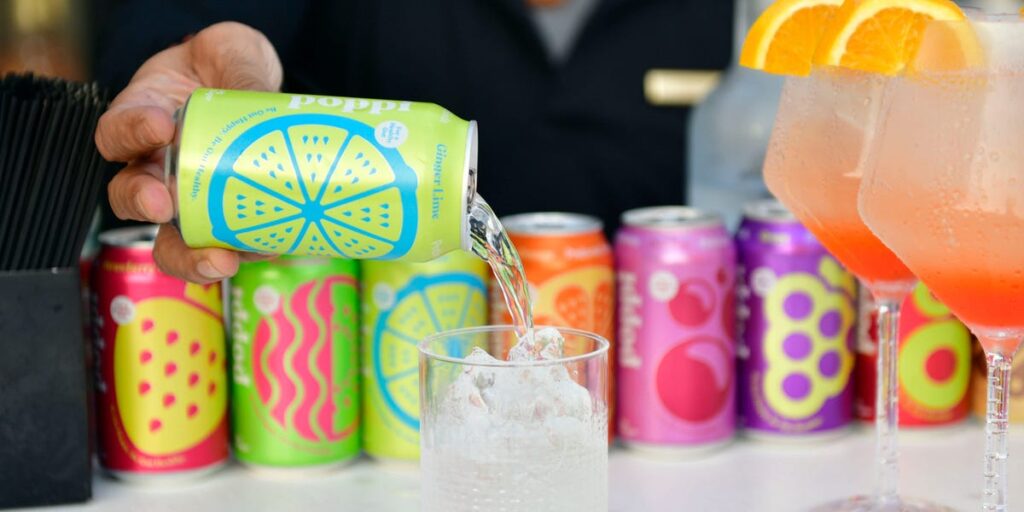- Extravagant influencer marketing campaigns are sparking online backlash.
- Poppi drew some criticism for loaning out vending machines to influencers for the Super Bowl.
- We spoke with marketers about how over-the-top campaigns could hurt a brand’s image.
A wave of anti-extravagance is afoot within the influencer marketing space — and it can be a minefield for brands.
Prebiotic soda company Poppi caused an online firestorm earlier this month when it made dozens of influencers an extravagant loan: Poppi-branded vending machines over Super Bowl weekend to promote its commercial during the big game.
Wasteful PR packaging has been a conversation in the beauty space for years, said social media consultant Rachel Karten. Now, campaigns by brands that could be interpreted as financially or environmentally wasteful are not resonating broadly — in part due to the macroeconomic climate, said Olivia McNaughten, the senior director of product marketing and partnerships at Grin.
Those sensitivities can be heightened when it comes to influencers, who are supposed to be relatable, McNaughten said.
“It looks like the brand is essentially wining and dining an influencer for their attention,” Karten added. “And the customer’s like, ‘well, hey, we actually buy your product. Why aren’t you giving us that same treatment?'”
Poppi told Business Insider that the machines were loans for Super Bowl viewing parties and would be rolling out more broadly. The company also said that false claims about their price tags were circulating online. Competitor Olipop, for instance, commented on TikTok that the machines cost $25,000 — a figure Poppi said had been inflated by 60%.
But even the appearance of extravagance can turn off consumers in the current polarizing cultural landscape.
Tarte Cosmetics, which has thrown over-the-top influencer trips for years, drew additional scrutiny this year for a trip that coincided with the Los Angeles fires.
‘You go through the list of all the reasons why you might be canceled’
In addition to the perceived wastefulness, the backlash against Poppi also stemmed from the campaign’s focus on mega influencers, rather than incorporating a mix of creators with varying follower sizes, McNaughten said. A lack of diversity in the influencers Poppi tapped also played a role, said Nathan Jun Poekert, chief marketing officer of General Idea.
“It’s really, really hard to avoid criticism on the internet right now, no matter what you do,” Jun Poekert said.
Brands should still enter the ring in a polarized climate, but be prepared. Before reaching out to talent, Jun Poekert said, “You go through the list of all the reasons why you might be canceled.”
Companies are making shifts to democratize access to influencer campaigns.
Poppi told BI it would be rolling out vending machines “via events, social giveaways and nominations in the weeks to come,” echoing an online apology from cofounder and chief brand officer Allison Ellsworth.
In response to the California wildfires, Tarte is hosting a trip for firefighters, first responders, EMTs, police, search and rescue, volunteers, and others impacted.
“Everything we do is rooted in making beauty more fun, inclusive, and accessible — not just for influencers, but for everyone,” Tarte told BI in a statement.
It’s also possible that, on another level, the Poppi campaign was a win. Any visibility could be a plus for a nascent player in a market dominated by legacy brands like Coca-Cola and Pepsi that are increasingly encroaching on its territory.
“If I am Poppi on the brand side, to be completely honest, I am very excited about the overall results of this,” Jun Poekert said. “As much as the media cycle has accelerated at a rapid pace, they are getting tons of visibility and optics from this.”
Read the full article here


